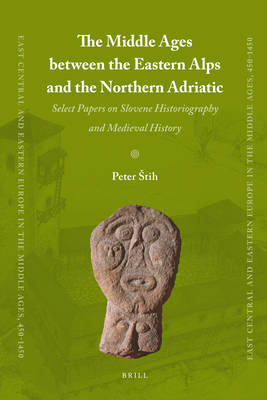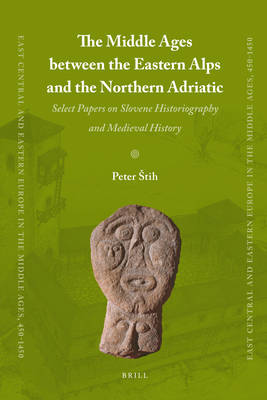
Door een staking bij bpost kan je online bestelling op dit moment iets langer onderweg zijn dan voorzien. Dringend iets nodig? Onze winkels ontvangen jou met open armen!
- Afhalen na 1 uur in een winkel met voorraad
- Gratis thuislevering in België vanaf € 30
- Ruim aanbod met 7 miljoen producten
Door een staking bij bpost kan je online bestelling op dit moment iets langer onderweg zijn dan voorzien. Dringend iets nodig? Onze winkels ontvangen jou met open armen!
- Afhalen na 1 uur in een winkel met voorraad
- Gratis thuislevering in België vanaf € 30
- Ruim aanbod met 7 miljoen producten
Zoeken
Omschrijving
The book deals with the Slovene historiography and history of the Slovene and neighbouring territories in the Middle Ages. It is the first work of its kind published in English. It thus makes the medieval history of this part of Europe and some of its fundamental problems accessible to the widest range of researchers. It contains 18 papers which comply with modern methodological approaches and current trends in historiography and it puts the validity and usefulness of these methods to the test in the case of "Slovene" material and examples. The first part of the book critically examines Slovene historiography, which largely viewed the Middle Ages from a national angle. The second part is dedicated to early medieval history, focussing on issues of Slavic ethnogeneses, society, and political structures. The third part addresses chapters from the history of the Church, the nobility, and the formation of Länder, and also discusses the famous enthronement of the Carinthian dukes.
Specificaties
Betrokkenen
- Auteur(s):
- Uitgeverij:
Inhoud
- Aantal bladzijden:
- 488
- Taal:
- Engels
- Reeks:
- Reeksnummer:
- nr. 11
Eigenschappen
- Productcode (EAN):
- 9789004185913
- Verschijningsdatum:
- 13/08/2010
- Uitvoering:
- Hardcover
- Formaat:
- Genaaid
- Afmetingen:
- 155 mm x 235 mm
- Gewicht:
- 1919 g

Alleen bij Standaard Boekhandel
+ 430 punten op je klantenkaart van Standaard Boekhandel
Beoordelingen
We publiceren alleen reviews die voldoen aan de voorwaarden voor reviews. Bekijk onze voorwaarden voor reviews.











